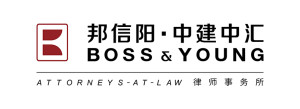It is an important exit route for private equity/venture capital (PE/VC) to have its investees access the capital market. An enterprise generally needs to sort out its equity and assets before accessing the capital market. In this case, an inter-enterprise asset acquisition is generally involved.

Sean Wang
邦信阳中建中汇律师事务所
合伙人
Partner
Boss & Young
In the process of enterprise asset acquisitions, reorganization in which special tax treatment is applicable will help smooth asset acquisition, reduce tax costs, and provide solutions to related-party transactions, horizontal competition and other problems that are the focus of IPO review. For these reasons, special tax treatment is worth the attention of PE/VC. Enterprise asset acquisitions mainly involve enterprise income tax, value-added tax and land appreciation tax, in case of acquisition of land and property.
Enterprise income tax can be exempted. It is provided in the Notice of the Ministry of Finance and the State Administration of Taxation on Several Issues Concerning the Enterprise Income Tax Treatment on Enterprise Reorganization that special tax treatment provisions may apply if all of the following substantive conditions are satisfied: (1) the organization has a reasonable commercial purpose and the primary purpose is not to reduce, exempt or defer any tax payments; (2) the assets or equity involved in an acquisition, merger or division should meet the prescribed thresholds as set out in this notice; and (3) the equity consideration involved in the reorganization transaction shall comply with the prescribed ratio as set forth in this notice.
Special tax treatment may apply to the equity consideration paid and received by the parties to the asset acquisition transaction in compliance with the following rules. The assets acquired by the acquiring enterprise shall not be less than 75% of the total assets of the transferring enterprise, and the equity consideration paid by the acquiring enterprise at the time of asset acquisition shall not be lower than 85% of the total consideration. The equity that the transferring enterprise acquires from the acquiring enterprise can be taxed based on the original tax basis of the transferred assets, and the assets that the acquiring enterprise acquires from the transferring enterprise can be taxed based on the original tax basis of the transferred assets.
In the Notice on Enterprise Income Tax Treatment for the Promotion of Enterprise Reorganization, the said thresholds are adjusted so that more enterprises will be entitled to special tax treatment. In the notice, the condition for application is revised such that “for asset acquisition, the assets acquired by the acquiring enterprise shall not be less than 50% of the total assets of the transferring enterprise”.
The value-added tax can be exempted. According to the Provisions on Matters Concerning the Pilot Program of Replacing Business Tax with Value-added Tax, “where physical assets in whole or in part, and related creditor’s right, liabilities and labour force, are transferred to other entities and individuals by means of merger, division, sale or replacement in the course of asset restructuring, the immovable property and land use right transferred therein” are exempted from value-added tax. Of the items listed in this provision, the transfer prices of the immovable property and land use right shall be assessed and other items may be transacted at the negotiated prices.
Land appreciation tax may be suspended. It is stipulated in the Notice on Relevant Land Appreciation Tax Policies for Enterprise Restructuring and Reorganization that the enterprise, in which an entity or individual invests with state-owned land and premises at the time of restructuring and reorganization, and to which the entity or individual transfers the title of such state-owned land and premises, may be tentatively exempted from land appreciation tax. Such land appreciation tax policies for enterprise restructuring and reorganization do not apply to real estate developers. According to the Notice on Continuing the Implementation of Relevant Land Appreciation Tax Policies for Enterprise Restructuring and Reorganization, this policy will continue to be operative until 31 December 2020.
The author will elaborate on the effect of proper implementation of reorganization in which special tax treatment is applicable through analysis of a case in 2016.
A company proposing to go public planned to use 2017, 2018 and 2019 as its financial reporting years. The company had no plant asset under its name. It rented the plants of its shareholders for production and operation. Its shareholders supplied goods to it. Therefore, the company needed to acquire plant assets to resolve the problem of place of business.
Solutions to the significant and frequent related-party transactions were also required. The tax treatment option, however, should not substantially disturb the set IPO application period because of major asset restructuring. In the last third of November 2016, the shareholders’ meeting of the company made a resolution to include the plant land and business of its shareholders in the proposed listing entity. Asset acquisition had to be completed by the end of 2016 so as not to affect the applicability of the fiscal years.
The proposed listing entity acquired the asset portfolio comprising the plant, land and equipment, a part of the creditor’s right and liabilities, and personnel of the shareholder enterprises at the consideration of its equity. The shareholders increased their capital contributions in the proposed listing entity according to the assessed value of the portfolio and the set price-to-book ratio, respectively.
The proposed listing entity, after acquisition of the asset portfolio, was jointly held by natural persons and enterprises. Special tax treatment applied to this company reorganization in accordance with the above-mentioned notices issued by the State Administration of Taxation (SAT). The main authorities and processes involved in this case were as follows: capital increase formalities were handled by the administration for commerce and industry; change of ownership was handled with the real estate regulator; and certification certificates were issued by the SAT and local taxation authority.
The company completed asset acquisition in a month. This method is advantageous in its legal compliance, short timeframe and low tax cost, but disadvantaged by high taxes when corporate shareholders reduce their holdings of stock later. This disadvantage will only exist theoretically if it is considered in the design of shareholding structure for asset acquisition, and the shareholding percentage of the corporate shareholders is adjusted in advance through price-to-book ratio for the consideration of asset acquisition, so that the corporate shareholder tends to be the platform, as promoters, to retain a certain shareholding percentage in the listed company.
Sean Wang is a partner at Boss & Young
中国上海市黄浦区中山南路100号
金外滩国际广场12-15楼 邮编:200010
12/F-15/F, 100 Bund Square
100 South Zhongshan Road
Huangpu District, Shanghai 200010, China
电话 Tel: +86 21 2316 9090
传真 Fax: +86 21 2316 9000
电子邮箱 E-mail:
wangxiaoye@boss-young.com






















